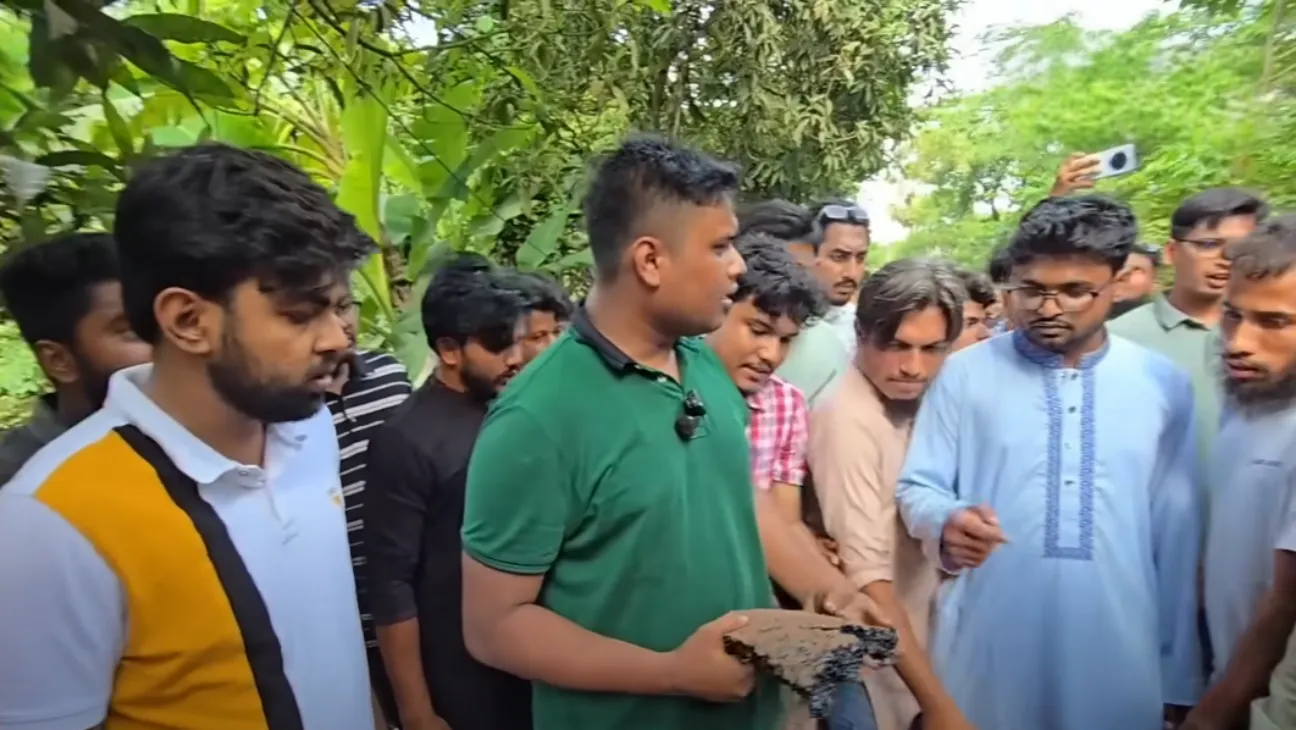Allegations of poor construction and irregularities have surfaced in a road development project near Debir Dwar in Cumilla. Locals claim that low-grade materials are being used and the work is being rushed to meet the fiscal year deadline.
Residents voiced concerns about the quality of bitumen and gravel used on the road. One local pointed out, “They poured the oil fifteen days ago, and now they’re laying it without letting it settle. This doesn’t work.”
The road, which was supposed to be built with a 40-millimeter thick layer, appears to be getting only 22 to 25 millimeters, according to multiple eyewitness accounts. In some spots, the asphalt peels off with minimal pressure.
Hasnat Abdullah, a key organizer of the National Citizen Party (NCP), visited the site and inspected the road by hand. He lifted a chunk of the surface and showed how easily it came off. “It feels like peeling off a pancake,” he said, comparing it to traditional chitoy pitha, a rice cake known for its soft texture.
After showing how shoddy the work was, Abdullah pointed the finger squarely at the project’s leadership. For him, the real question wasn’t just about the bad materials, but how a failure this obvious was simply allowed to happen with no one stepping in. “This work is happening directly on soil without any solid foundation. Who approved this?” he asked, pointing to local officials and engineers. “Where is the person from Sirajganj who was supposed to be in charge?”
One engineer, confronted on-site, admitted the work had been accelerated due to the end-of-June fiscal closing. “We’re under pressure to finish before the deadline,” he said. But Abdullah pushed back. “So why wait until the last moment? You’ve had all year.”
Tensions rose as residents and the NCP team continued questioning the workers and supervisors. Some contractors argued that they were just following orders from the office. But critics say that’s no excuse for skipping safety and durability standards.
Read Also: NCP Alleges Targeted Attacks as Political Tensions Rise in Dhaka
“If the road collapses, who pays? The public does. Not from your pocket,” said one protester. “You talk about canceling the contract, but what about the people who suffer from a delayed project?”
The road, roughly one and a half to two kilometers long, showed multiple signs of wear during the visit. Local voices demanded that both the contractor and the supervising engineer be held accountable.
For the people who had to live with the results, the issue wasn’t complicated. As one local put it, accountability was key. “You took the contract. You have responsibility,” he stated. “You can’t just say it’s someone else’s job when things go wrong.”
The engineer promised that he would personally file a report and fix the issues. Still, community members remained skeptical, saying similar promises were made before.
As construction continues, questions remain. Was the project mismanaged from the start? Were budget allocations manipulated? And how many more such roads are being rushed in silence?
No formal government statement has been issued as of Tuesday morning. The NCP said it will push for a full investigation. Locals hope someone listens before the damage becomes permanent.









